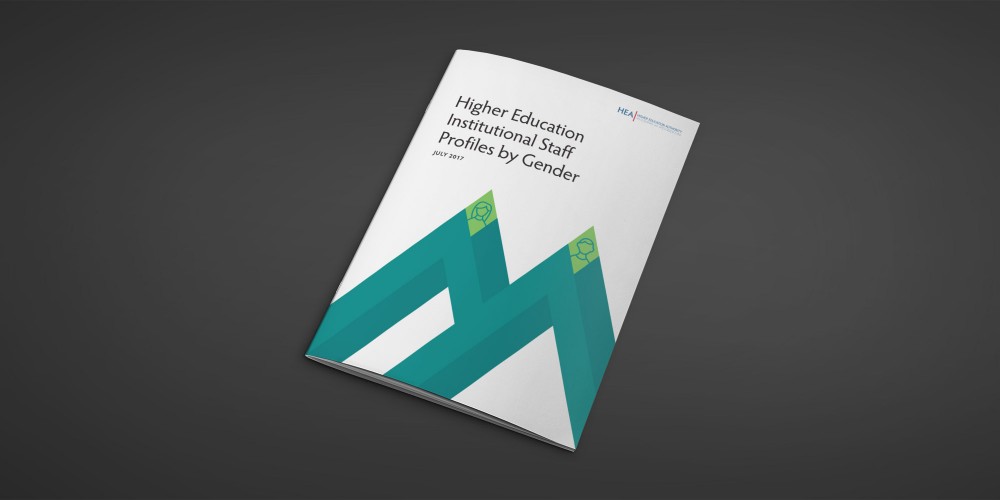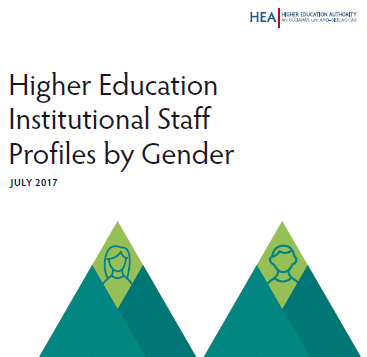
Find information on how to make a Protected Disclosure under the external procedures in place in the HEA.

By Maura O'Shea
Posted: 19 July, 2017
A year on from the publication of the Report of the Expert Group: HEA National Review of Gender Equality in Irish Higher Education Institutions (June 2016), the Higher Education Authority (HEA) has published the second iteration of the Higher Education Institutional Staff Profiles by Gender, presenting gender-disaggregated data for 2016 on the leadership, governance, management and staffing of the universities, affiliated colleges and the institutes of technology, along with updated 3-year-average data (for 2014–2016) on the gender-breakdown of professors, associate professors, senior lecturers and lecturers.
The new data shows that there were only small improvements (1-2%) in addressing the under-representation of women at senior levels and on the governance and management of institutions between 2015 and 2016. Although a step in the right direction, these improvements are marginal, and there still exists a significant lack of representation of women on key decision-making bodies in the institutions and at senior levels of academic staff.
The Irish Higher Education sector is at a very early stage of development in tackling this problem, however the strong engagement by the institutions with the Athena SWAN initiative is greatly welcomed by the HEA, indicating a commitment to effecting cultural and systemic change to support gender equality and the progression of women in higher education.
Following the bronze institutional and departmental awards made to Trinity College Dublin and the University of Limerick in 2015, University College Cork achieved an institutional bronze award in 2016, and Dublin City University and University College Dublin followed suit in 2017, with the University of Limerick also receiving its third departmental bronze award.
The bronze award serves as the ‘entry-level’ award certifying institutions’ commitment to the 10 key principles of the Athena SWAN Charter and requiring that they perform a critical self-analysis to identify the problem areas and indicate that a plan has been developed to address these. Whereas, a silver Athena SWAN award requires evidence that progress has been achieved, and a gold award signals that an institution is more advanced in successfully instigating structural and cultural changes to advance gender equality systemically across the institution. Therefore, any institution who has performed sufficient self-analysis can and should be able to get a Bronze, however only those that have managed to get real and meaningful change will be able to obtain a silver or indeed a gold.
Only colleges addressing gender inequality will get funding in the future, as indicated by the Irish Research Council, Science Foundation Ireland and the Health Research Board who will require higher education institutions to have attained a bronze institutional Athena SWAN award by the end of 2019 and a silver institutional Athena SWAN by the end of 2023 in order to be eligible for research-funding.
Commenting on the publication of the new Higher Education Institutional Staff Profiles by Gender, the CEO of the HEA, Dr. Graham Love, said: “The HEA welcomes the small steps in the right direction by higher education institutions starting to address gender inequality amongst senior staff and on their management and governance boards, but continued strong commitment and leadership needs to be demonstrated by the HEIs if real and meaningful progress is to be made on this important agenda”.
